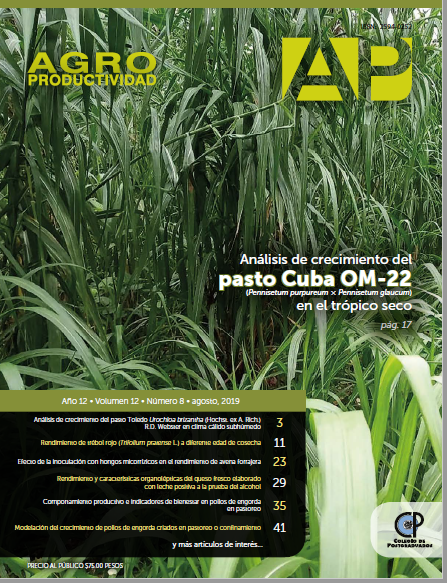Rendimiento y características organolépticas del queso fresco elaborado con leche positiva a la prueba del alcohol
##plugins.themes.bootstrap3.article.main##
Keywords
Análisis sensorial, Jueces semientrenados, Inestabilidad térmica.
Resumen
Objetivo: Determinar el rendimiento y las características sensoriales de quesos frescos elaborados con leche Positiva a la Prueba del Alcohol.
Diseño/metodología: Se utilizó leche fresca proveniente de vacas cruzas de Brahman x Suizo Pardo Americano, las cuales se mantuvieron en pastoreo. Se seleccionaron once jueces con categoría de semientrenados. En el análisis sensorial se utilizaron las pruebas, triangular, dos de cinco, de aceptación, perfil de textura y perfil de sabor. En los perfiles de sabor y textura se utilizó una línea de 10 cm para señalar la intensidad. La prueba de aceptación se realizó a 50 consumidores sin entrenamiento. Los datos obtenidos se sometieron a un análisis de varianza, el efecto fijo y la respuesta positiva o negativa de la leche a la prueba del alcohol; la diferencia entre promedios se determinó con la prueba de Tukey (P? 0.05).
Resultados: Se observó que el queso elaborado con leche Positiva a la Prueba del Alcohol presenta una menor aceptación (P?0.05), mayor intensidad de dureza y porosidad y un menor sabor residual (P?0.05).
Limitaciones del estudio/implicaciones: El resultado a la prueba del alcohol es variable, por lo que es necesario hacer la prueba diariamente para separar la leche. Hallazgo/conclusión: El queso elaborado con leche positiva a la prueba del alcohol tiene menor aceptación por el consumidor debido a sus características organolépticas.

